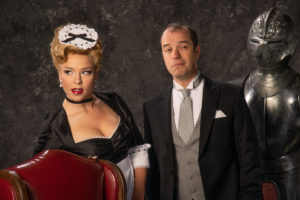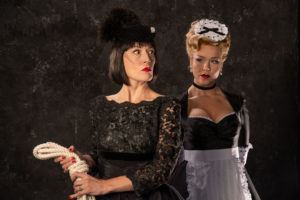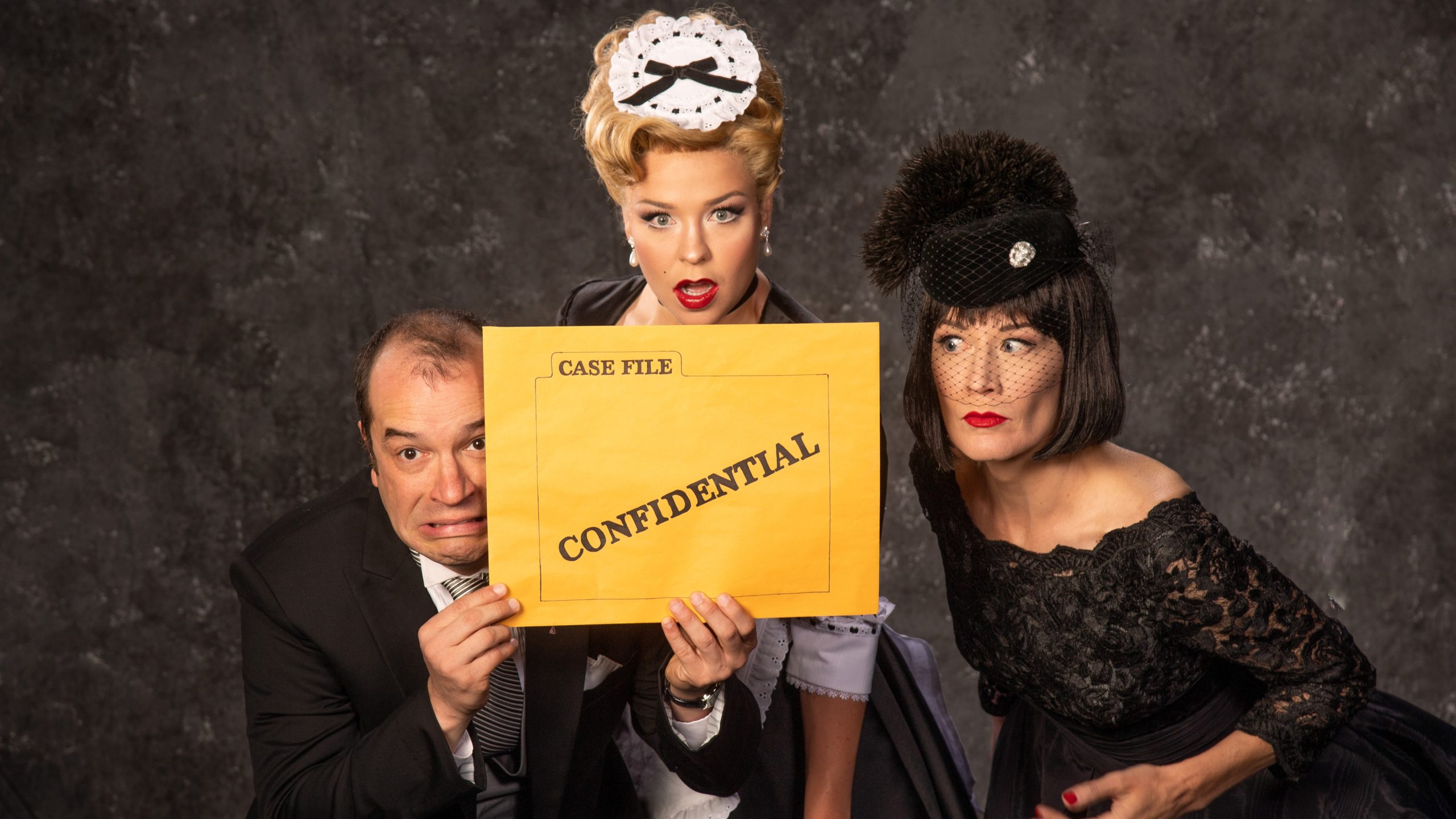CEDAR CITY — Who killed Mr. Body? Was it Mrs. White in the billiard room with the rope? Was it Colonel Mustard with the wrench in the library? At the Utah Shakespeare Festival’s production of Clue, everybody is a suspect in this murder mystery — and the audience is in grave danger of dying from laughter.

Written by Sandy Rustin (with additional material by Hunter Foster and Eric Price) and adapted from the 1985 film’s screenplay by Jonathan Lynn, Clue is a murder mystery spoof. The original board game’s classic characters come to life as they arrive at a mansion. When their host, Mr. Body, is murdered, they all have a motive and must try to solve the mystery with the help of the butler Wadsworth. The synopsis makes the play sound like a serious mystery, but Clue is a hilarious stage farce. All the comedic bits from the cult film are there, plus many, many more.
Under the direction of Hunter Foster, every form of comedy appears in Clue, including sight gags, broad physical comedy, absurdist humor, puns, and more. Somehow, all the jokes land well, and often the audience does not have enough time to catch their breath before the next gag. Apart from the humor, Foster’s direction bursts with variety, and I enjoyed the discovering the many ways that the characters could travel from one part of the mansion to another. Foster can make even mundane stage business, like searching through the house, into comedic gold.

I love a good ensemble cast, and Clue has an extremely unified cast that met my highest expectations. Even their physicality was in perfect synchronization, such as when listening to a conversation through a door, or breaking out into a surprise dance. Every actor was generous, giving their castmates a rich performance that others could build on. This was especially apparent in the scenes with rapid-fire dialogue that required effective joke setups, impeccable timing, and rapt attention to the proper focus on stage.
To the extent that there is a starring actor, it would be Aaron Galligan-Stierle in the role of the butler Wadsworth. Galligan-Stierle wore a face mask for the entire performance as part of the Festival’s efforts to minimize a COVID-19 outbreak among the company. But he effectively compensated with a strong vocal technique. The mask did not muffle Galligan-Stierle’s voice (unlike actors wearing masks in other productions I saw the same week), and his physicality and expressive eyes compensated for any disadvantage that the mask introduced. My favorite Wadsworth moments were the desperate attempts to distract a visiting police officer and his frantic recap of the events of the play.

Michael Doherty as Mr. Green stole the spotlight frequently, thanks to his mastery of physical comedy. With his spastic movements (such as when searching for a key on a corpse) and rubbery face, Doherty often single-handedly enhanced the comedy of a scene. As Miss Scarlet, Cherita Armstrong is a treasure. Her sultry physicality brought a sense of stability to many scenes, and I adored the nonchalant way that she can deliver a witty quip. Finally, Melinda Parrett is wonderful as the black widow Mrs. White; her mysterious air does much to enhance the mood of the show.
Jo Winiarski‘s set is a technical triumph. The set has components that can move in from the sides or ceiling, slide away, or flip open to reveal a dizzying array of rooms and secret passageways. Moreover, the set is intricately detailed, and every room seems to have its own personality. (The Francis Bacon-inspired artwork in the library was especially creepy.) William Kirkham‘s lighting design was equally complex, with sudden lighting cues to enhance the melodrama of a new plot twist and changes in color to enhance mood. I especially loved the rotating grid on the floor that appeared when characters ran from one room to another because it was reminiscent of the squares in the hallways on the original board game. And Melanie Chen Cole’s sound design, which included a rainstorm, many gunshots, screams, and more, was uncanny in its realism.
Clue is one of those special productions where all of the components of a play — the script, the acting, the direction, the designs — come together and create a whole that is greater than the sum of its parts. There are no missteps in this production. Indeed, the Utah Shakespeare Festival’s production of Clue is the perfect crime.
[box]The Utah Shakespeare Festival production of Clue plays various dates at 2 PM or 8 PM through October 8 at the Randall L. Jones Theatre on the campus of Southern Utah University. Tickets are $44-84. For more information, visit bard.org.[/box]

